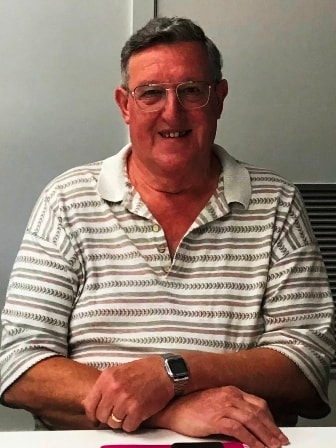Being a very small community, everybody knew everybody, and it was very much a community with everybody involved in community activities.
From about the time children could hold a tennis racket, there were tennis lessons for the youngsters to provide the future senior players for the tennis club.
The Primary School had a good number of students, with many using different ways of getting to school. In my case, it was a relatively short walk for myself and my brother, but others used bikes, and in one case four members of the one family would ride one horse to school. Many others rode their ponies. There was a paddock at the rear of the school building for the horses and ponies to graze during the day.
From the age of 14 you were eligible to join the Wollert and District Youth Club. I was involved with the club for a number of years in official positions including President and Treasurer. This club promoted interaction between the younger members of the community and involved indoor sports such as volleyball, badminton, and at times ‘mini Olympics’. The club also organised outings, and I can remember going to Kooyong to see the tennis, and when they were in Melbourne, the Harlem Globetrotters. We also visited operational factories in the evenings, such as Tarax, Carlton United Breweries, and the Herald Sun. On the evening excursions we would stop at a café in Northcote and get hamburgers etc. on the way home. The club had two rules. Rule 1. We do not discriminate against anybody based on race, colour or creed. Rule 2. There are no more rules. At the age of 18, I was awarded the ‘Keystone’ award from the Victorian Association of Youth Clubs for my work with youth in the community.
At the age of 16 you are eligible to join the local fire brigade. My memories of those days, was that there was usually a fire somewhere after the school bus had dropped off the children, who smoked and then started a fire, or in the summer months, steam trains were often the culprit. The replacement crew situation at Wollert was simple, but effective. The first crew would go out as soon as the fire was detected usually around mid-afternoon. Those working out of the district would return home around 5.30 or 6 pm, and the five or six replacement crew would then take a car to the fire, so that the early crew could go home to milk the cows.
I have been fortunate for around fifty years of my life thus far, to have grown up and lived in small rural communities. At different times during my rural life I have been privileged to have been involved with some extraordinary people who have combined their talents and enthusiasm to achieve some extraordinary results for the benefit of the broader community.
One thing that I have benefited from by living in small rural communities, is the fact that they keep you ‘grounded’, and focused on what is important, not only to yourself, but also the broader community.
Barry O’Connor
May 2022.


 RSS Feed
RSS Feed
